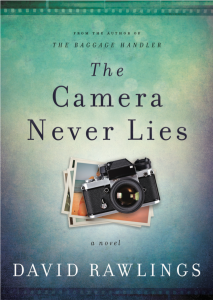by David Rawlings, @DavidJRawlings
There is no greater feeling than finishing your first book. It might have been a labor of love, defined by struggle. It might have been a glorious rush, driven by a flood of inspiration and words. But now it’s done, and a second feeling replaces the first: doubt.
What do I write next?
Or you might be the author whose first manuscript was subjected to the slow erosion of rejection. There can be a temptation to do something different, so what do you do?
For many people, they go to a series – the next story in the saga. They’ve got a whole series planned in their heads, and they continue the quest. They’ve built a world, so they turn their writing spotlight into a different corner of it.
But what if you don’t? Where do you go next for another idea? You can write something else, but it has to be on-brand. And there are a few ways you can do it.
Where do you start? I start with a question.
For me, that’s writing stories that get you looking deeper into life. Modern-day parables if you will.
The Baggage Handler was about dealing with emotional baggage. So my next book – to suit my style – had to be the same. And it is.
The Camera Never Lies is about honesty and transparency, telling a story about a marriage. The protagonist is a marriage counselor, keen to give advice about openness and honesty to everyone else, but harboring secrets of his own. This is on-brand for me, because relationships are relatable and secrets and honesty are a key part of them. And I pose a number of questions to readers asking them what secrets they may be holding. The question I started with was: “What would you do if your secrets were revealed to those around you, and you couldn’t stop them?”
So if you’ve finished your manuscript, where do you go next?
- Get to the heart of your first story
If you were to pry open your first story, what was at its heart? By this I don’t mean romance or historical fiction. Was it a redemptive story, or one about overcoming the odds?
Write another one of those, revolving around that theme. Approach it from a different angle, or from the perspective of a different type of character.
- Get to the heart of you as a writer
Why do you write? For me, I want to write stories that help people get to deeper into life. So when I was trawling for ideas through my memory, my experience and the ideas I’ve got floating around my head. So my next idea wasn’t about baggage or airports, but it was about a life lesson told through a story.
And, so is my third novel. Where the Road Bends comes next June, and it’s a story about the turn our lives can take, and discovering where we are on the road of life. It’s a story to help people think deeper about their place in life, how they got there and where they’ll go from here.
- Get to the heart of your reader
What was it about your first manuscript/book that people responded to? Could you possibly write something that takes advantage of that? Was it your humor, your imagery or your turn-of-phrase? Was it a particular character, your research into a time of life or your ability to craft sizzling dialogue? You could start there.
So if you aren’t writing a series – and I’m not – use these as jump-off points for whatever it is that you will write next. It’s important to keep your fingers on the keys!

Based in South Australia, David Rawlings is an award-winning author, and a sports-mad father-of-three with his own copywriting business who reads everything within an arm’s reach. He writes that take you deeper into life, posing questions of readers to explore their own faith and how they approach life.
His debut novel – The Baggage Handler – won the 2019 Christy Award for First Novel. His second novel – The Camera Never Lies – focuses on honesty in relationships and is available for pre-order.
He is currently signed with Thomas Nelson and represented by The Steve Laube Agency.


